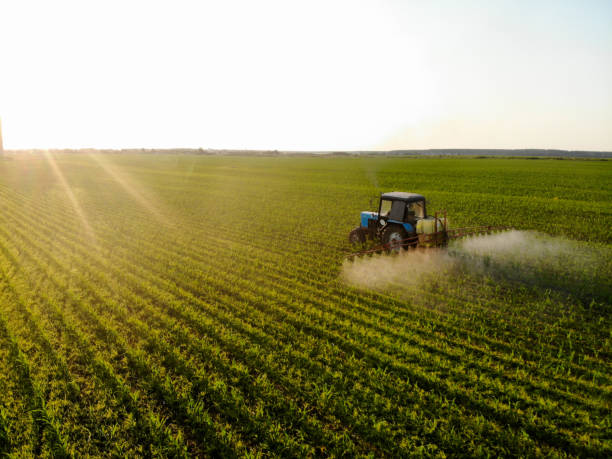
Smart agriculture, a paradigm that blends technology with traditional farming practices, has emerged as a transformative pressure within the agricultural panorama of India. Central to this evolution is the mixing of advanced tractors, which play a pivotal function in enhancing performance, productivity, and sustainability. This article delves into the realm of clever agriculture, exploring the diverse programs of technology in farming and the indispensable contribution of cutting-edge tractors in shaping the future of Indian agriculture.
Smart Agriculture in India
Smart agriculture, additionally referred to as precision farming, leverages the era to optimise numerous components of the agricultural system. In India, where agriculture is a cornerstone of the economy, the adoption of smart farming practices can revolutionise the sector. Some key additives of clever agriculture consist of the following:
- IoT (Internet of Things) Sensors: – Integration of sensors in the fields to reveal soil moisture, temperature, and nutrient ranges, offering real-time statistics for knowledgeable choice-making.
- Precision Farming: – Utilization of precision farming strategies, including GPS generation, to precisely manipulate planting, irrigation, and harvesting, minimising useful resource wastage.
- Data Analytics: – Analysis of large datasets to derive insights into crop styles, weather situations, and marketplace developments, helping farmers in making statistics-driven decisions.
- Drones and UAVs (Unmanned Aerial Vehicles): – Deployment of drones for aerial surveillance, crop tracking, and pest control, imparting a chicken’s-eye view of the fields.
- Smart Irrigation Systems: – Implementation of automated irrigation structures that modify water usage based on actual-time weather conditions and crop necessities.
Role of Tractors in Smart Agriculture:
Tractors, long considered the workhorses of Indian agriculture, have gone through a technological metamorphosis, becoming essential additives of clever farming practices. The incorporation of superior features in cutting-edge tractors aligns with the concepts of precision farming, making them critical gear for the present-day farmer. Let’s discover how tractors contribute to the aspects of clever agriculture:
- GPS Technology for Precision Farming: Modern tractors like the Swaraj 724 XM come prepared with GPS technology, allowing farmers to navigate their fields precisely. This is especially beneficial for sports, including planting, ploughing, harvesting, and optimising the usage of land and resources.
- Automated Steering Systems: – Tractors with automatic guidance structures beautify precision by following predetermined paths with minimal human intervention. This not only improves efficiency but also reduces overlap, saving time and resources.
- Remote Monitoring and Control: – Smart tractors allow far-off tracking and control through cellular programs. Farmers can monitor the tractor’s overall performance, fuel usage, and location, taking into account well-timed interventions and preventive upkeep.
- Telematics and Data Connectivity: – Telematics structures in tractors enable seamless facts connectivity. This helps the transfer of facts among tractors and centralised databases, empowering farmers with precious insights for decision-making.
- Implement Control Systems: Tractors prepared with into effect manipulate systems permit for specific manipulation over attached implements, ensuring accurate seed placement, fertilization, and other important obligations.
- Efficient Power Management: – Advanced tractors comprise green electricity management structures, optimising fuel intake and reducing environmental impact. This is in step with sustainable farming practices.
- Integrated Farm Management Systems: Some tractors are part of integrated farm management structures. Where data from diverse farming activities are consolidated and analysed to offer comprehensive insights for better farm-making plans.
Benefits of Smart Agriculture and Modern Tractors:
- Increased Productivity: – The precision and performance supplied through clever agriculture practices, facilitated with the aid of cutting-edge tractors, contribute to improved productivity and crop yields.
- Resource Optimization: – Smart agriculture, with the useful resource of advanced tractors, optimises using sources including water, fertilizers, and pesticides, minimising waste and environmental effects.
- Cost Savings: Precision farming reduces entry prices by ensuring that sources are applied simplest wherein and whilst wished. This value-effectiveness is mainly useful for small and marginal farmers.
- Environmental Sustainability: – The use of smart agriculture practices, which includes green tractors, promotes sustainable farming that minimises the ecological footprint and preserves herbal sources.
- Improved Decision-Making: Data-driven insights provided by means of smart agriculture technologies empower farmers to make informed selections about crop control. Even in resource allocation and market tendencies.
Challenges and Future Prospects:
The mixing of smart agriculture and contemporary tractors holds monstrous promise. The numerous challenges have to be addressed for big adoption:
- Technological Literacy: – Many farmers, specifically in faraway regions, need more technological literacy to embody clever agriculture practices. Initiatives for training and awareness are important.
- Infrastructure and Connectivity: – Reliable net connectivity is vital for the seamless operation of smart agriculture technology. Improving rural infrastructure is essential for overcoming connectivity challenges.
- Affordability: The initial value of adopting smart agriculture technology, including superior tractors like the Mahindra 585, can be a barrier for small-scale farmers. Subsidies and economic help mechanisms are had to make these technologies extra accessible.
- Customisation for Local Needs: – Smart agriculture solutions and tractors ought to be custom-designed to suit the diverse needs of Indian agriculture, considering variations in plants, climate, and farming practices across regions.
- Policy Support: – Government guidelines that incentivise the adoption of smart agriculture technologies. It provides subsidies, and support studies and development are essential for growing and permitting surroundings.
conclusion
The amalgamation of clever agriculture and advanced tractors heralds a new era for Indian farming. The nation seeks sustainable answers to cope with the challenges going through agriculture. The role of technology, mainly in the shape of clever tractors, will become increasingly pivotal.
Through concerted efforts in education, infrastructure development, and supportive policies, India can unlock the full potential of smart agriculture, ushering in an era of enhanced productivity, resource efficiency, and prosperity for its farming communities. The journey towards smart agriculture is not just a technological evolution but a commitment to a more sustainable and resilient future for Indian agriculture.
